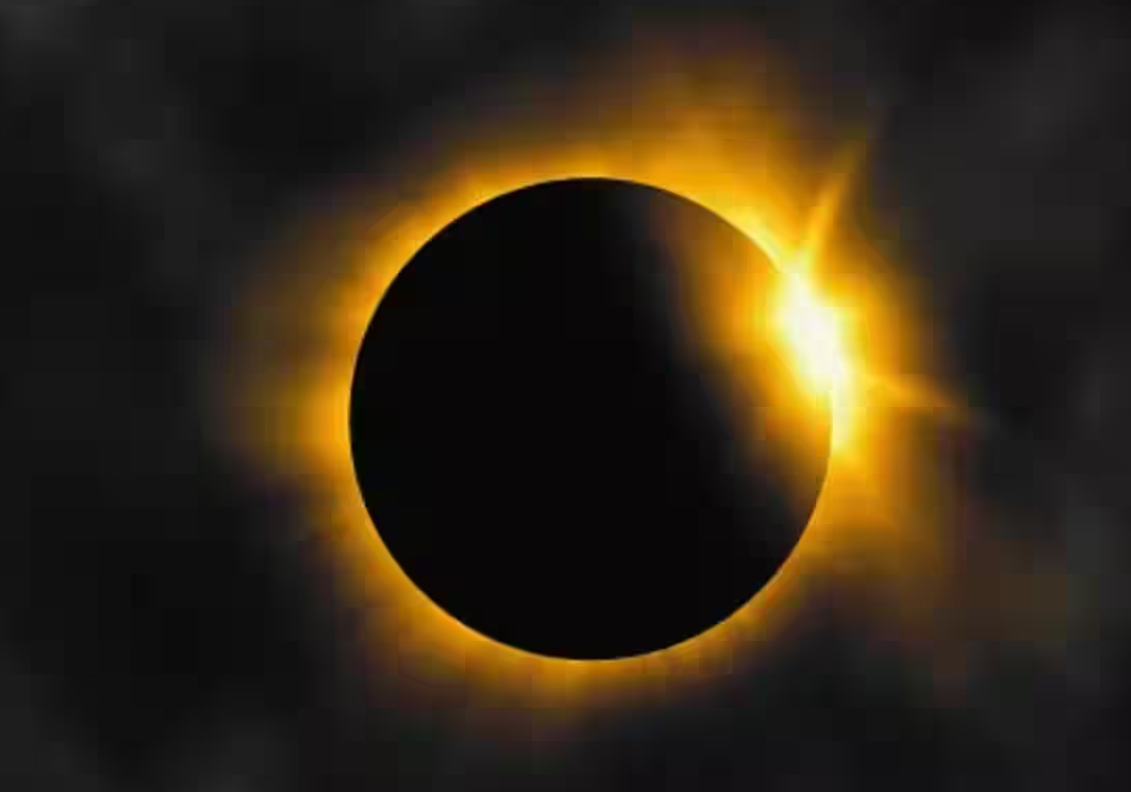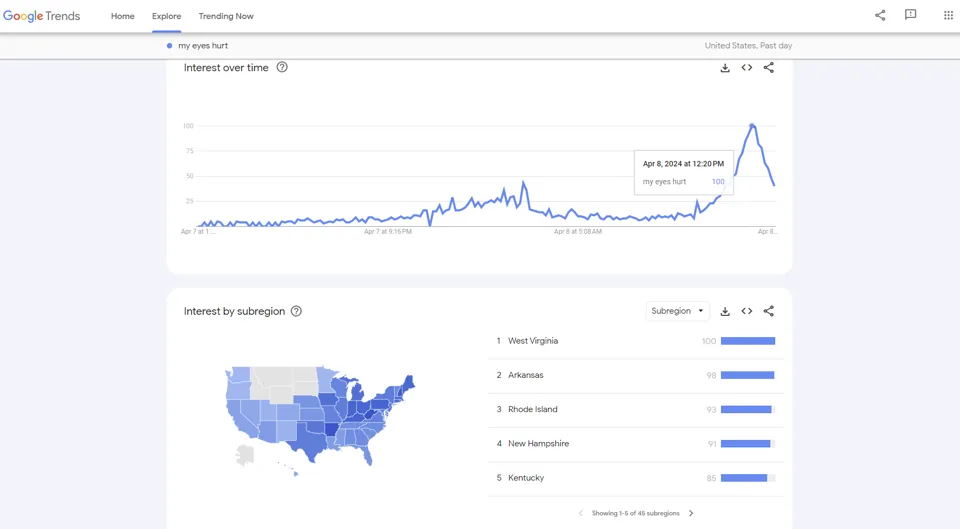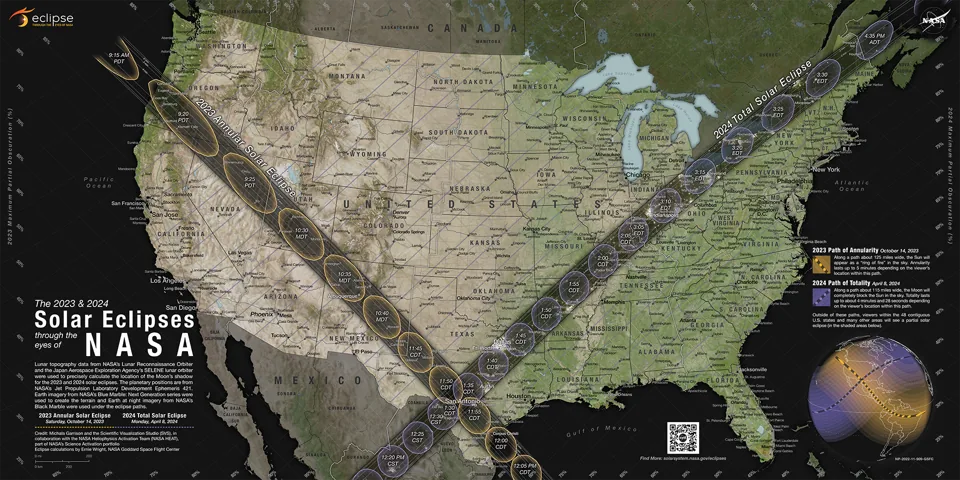Highlights
- Spike in “eyes hurt” searches on Google Trends during the solar eclipse.
- Social media reacts with concern and humour to the eye pain post-eclipse.
- States along the eclipse’s path see increased searches for eye discomfort.
- Calls for enhanced education on safe eclipse viewing for future events.
In an astronomical event that captured the world’s attention, a total solar eclipse graced the skies over the United States today.
While many gazed in awe through protective eyewear, Google Trends revealed a concerning surge in searches related to eye pain, indicating that some enthusiasts may have taken an overly daring approach to viewing the celestial spectacle.
A Rare Glimpse, Yet a Risky Pursuit
Google searches for ‘Why do my eyes hurt?’ surge after eclipse pic.twitter.com/M4CVi6GTMD
— Pubity (@pubity) April 8, 2024
As the moon gradually passed between the Earth and the sun, casting its shadow across large swaths of the country, streets were filled with eager spectators hoping to catch a rare glimpse of this remarkable phenomenon.
However, as the eclipse reached its peak around midday, a significant spike in search queries such as “eyes hurt,” “my eyes hurt,” and “why do my eyes hurt” was observed on Google Trends.
The surge in eye-related searches coincided with the timing of the eclipse, suggesting that countless Americans may have disregarded safety precautions and stared directly into the sun’s intense rays.

Social media platforms were abuzz with jokes and memes about the eclipse’s impact on vision, with the phrase “MY EYES” even trending on X (formerly known as Twitter).
Google Trends’ map data painted an even more clear picture.
States along the eclipse’s path, such as Maine, Rhode Island, Pennsylvania, West Virginia, Indiana, Arkansas, and Texas, witnessed a significant uptick in searches related to eye pain, indicating a potential correlation between exposure to the celestial event and vision discomfort.
Lesson for Future Eclipses

While the total solar eclipse of 2024 has now passed, the next total solar eclipse set to grace American skies on August 23, 2044.
Even so, education and awareness efforts must be intensified to prevent a repeat of the eye-related injuries that may have occurred during this year’s event.

FAQs
What caused the spike in Google searches for eye pain during the solar eclipse?
During the recent solar eclipse, there was a noticeable increase in Google searches for terms related to eye pain, such as “eyes hurt” and “why do my eyes hurt.”
This suggests that many individuals may have looked directly at the sun without proper protective eyewear, risking damage to their eyes.
How did social media respond to reports of eye pain after the eclipse?
In the aftermath of the eclipse, social media was flooded with posts, jokes, and memes about the eye pain some experienced from viewing the event.
The phrase “MY EYES” even became a trending topic, reflecting widespread discussion about the potential vision risks associated with unprotected eclipse observation.
Which states reported the most searches related to eye pain during the eclipse?
Google Trends data indicated that states along the eclipse’s path, including Maine, Rhode Island, Pennsylvania, West Virginia, Indiana, Arkansas, and Texas, experienced significant increases in searches for eye pain and related terms, suggesting a direct impact from viewing the solar phenomenon.
What precautions are recommended for viewing a solar eclipse safely?
To safely view a solar eclipse, individuals are advised to use special-purpose solar filters, such as “eclipse glasses” or handheld solar viewers.
Ordinary sunglasses, even if very dark, are not safe for looking directly at the sun during an eclipse. Proper eye protection is crucial to avoid potential eye injuries.
Also Read: Protect Your Smartphone During the Solar Eclipse, NASA Advises
Also Read: How to Clear Your Google Search History Easily: A Step-by-Step Guide
Also Read: Top Google Revenue-Generating Search Queries Unveiled: iPhones Lead the Way
